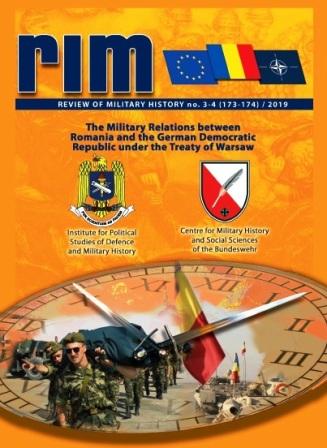Cooperarea ruso-română din anii 1877-1878 în reportajele corespondenților americani de război pe frontul balcanic
The Russo-Romanian Cooperation During 1877-1878 War as Reflected by the American War-Correspondents in the Balkans
Author(s): Dumitru VitcuSubject(s): Military history, Political history, 19th Century, The Ottoman Empire
Published by: Editura Militară
Keywords: Russo-Turkish War; Carol I; New York Times; Dobruja Russo-Turkish War; Carol I; New York Times; Dobruja;
Summary/Abstract: The Eastern Question, with its climax in the second part of the nineteenth century, the Russo-Turkish War of 1877-1878, refocused attention of the public and political opinion from abroad on one of the most turbulent areas of the world, namely the Balkans, justly characterized either as the “powder keg of Europe”, or as a “laboratory of history”. The geographical position, political aims and the international legal status did not allow Romania to stay out of the conflict. The Romanian political goal of winning the national state independence, following a realistic evaluation of the general European conditions and the unsuccessful diplomatic initiatives to remain neutral in the Balkan crisis, was to be achieved by developing a close cooperation with Russia. The Romanian willingness to follow this road, in spite of old anti-Russian feelings, was a significant and a radical political option, underlined by the numerous war correspondents, in their illustrative and comprehensible writings (narratives, notes or correspondences) sent to many European or American newspapers. The pact with Russia at the outbreak of the War, in April 1877, enabled Danubian Romanians to dodge the full costs of armed conflict. A declaration of independence and battlefield exploits filled Romanians with glorious self-esteem, but the peace-making process involved difficult issues for them, having to confront with the loss of southern Bessarabia, amending their Constitution, naturalizing some of the indigenous Jews, and finally purchasing proper railroads from a German company. However, on the whole, the result of the War for Romania was a major success, given the circumstances which could not be controlled due to their unpredictable nature. Regarding Russia, whose contribution in the historic moment which symbolized the first step towards Greater Romania, namely the inclusion of Dobruja in the frontiers of the Romanian national state, it managed to impose itself as a decisional factor in the continental “balance of powers”
Journal: Revista de istorie militară
- Issue Year: 2022
- Issue No: 1-2
- Page Range: 12-25
- Page Count: 14
- Language: Romanian

